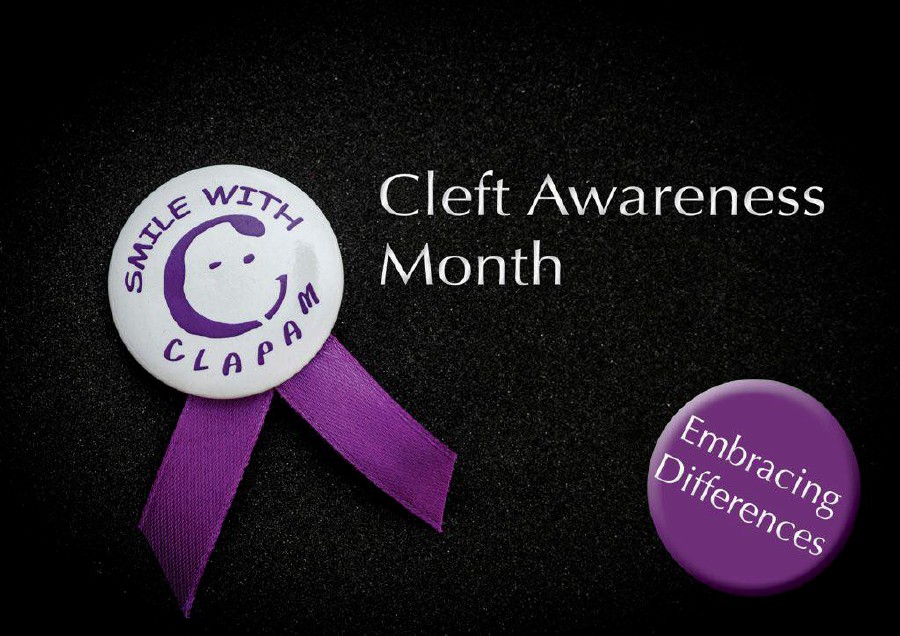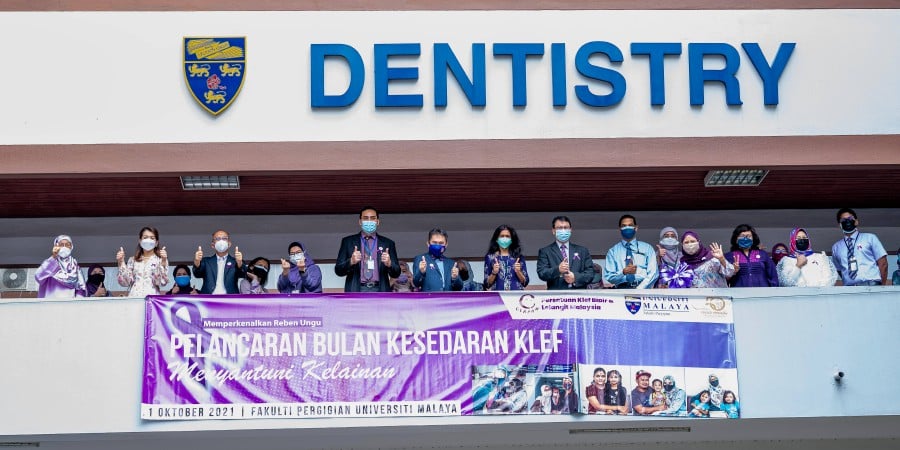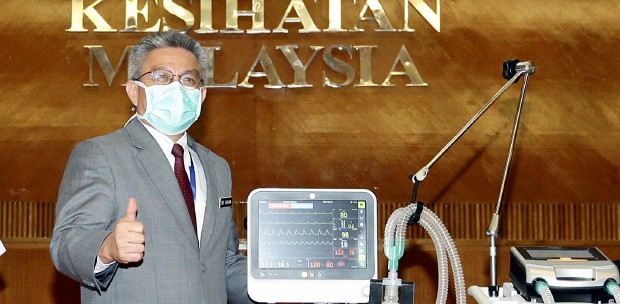THE pandemic has impacted the early treatment of patients with cleft lip and palate.
Ideally, the care of patients with lip and palate cleft should not be totally suspended. Hence the need for alternative ways or support systems through digital channels to reach out to patients.
Telehealth services have proven to be very useful and highly recommended for critical communication and the continuation of care.
During our few nationwide lockdowns, elective procedures (such as cleft surgeries) and physical CCC clinics (Combined Cleft Clinics) were cancelled or rescheduled until recently.
As a result, most cleft centres successfully adopted and utilised telehealth services in reducing the burden of care and at the same time safeguarding the continuation of cleft care.
Telehealth services are useful to prevent exposure to Covid-19 and reduce strain on the healthcare system as they reduce cost, time and facilitate high-quality care when one-on-one visits are not possible.
For example, the use of a smartphone with a camera function provides the possibility to communicate with clinicians about urgent conditions.
Extraoral and intraoral photographs and radiographs can also be shared with medical professionals involved in the treatment of a patient via a secure online platform.

Here are some common challenges with cleft care during the pandemic and how they should be addressed:
Patients undergoing orthodontic treatment, possibly in preparation for orthognathic surgery, alveolar bone graft or even routine orthodontic treatment, may feel apprehensive with the interruptions. Fortunately, most orthodontic appliances can be left for some months without major problems provided the usual aftercare instructions are followed.
It is highly recommended to maintain excellent oral hygiene throughout treatment. This can easily be achieved by brushing at least two to three times a day for two minutes each time followed by an interdental brush for cleaning in between the brackets.
The utilisation of a fluoride mouthwash at least once a day should be practised for a good overall outcome. Avoid snacking on food and drinks with added sugar as well as sticky and hard food that could break the brackets or the archwires.
A cleft by itself (repaired or unrepaired cleft) does not make someone more susceptible to Covid-19. There is no sufficient evidence to suggest children born with a cleft (with no other health issues) are at higher risk.
However, if a cleft occurs as part of a syndrome which affects other parts of the body, for example the heart, kidney or liver, it could increase the person's risk of Covid-19.
One may also have other health conditions unrelated to the cleft which pose a higher risk, such as diabetes, severe asthma and obesity.

A face mask should be worn by everyone as per government SOP and guidelines unless you are exempted from wearing one.
We have heard from a number of adults in the cleft community that they find masks uncomfortable due to their cleft condition which in turn affects breathing.
It is advisable to contact your cleft team or your physician for further clarification regarding specific individual /medical conditions for exemption from mask wearing.
The throat or nasal swab for coronavirus may be distressing, but it will not cause any harm in cleft conditions. However, it is recommended to avoid swabs within two weeks of surgery to avoid disrupting healing tissues. Once the surgical site has healed, there are no issues with getting the swab done.
Additionally, it is best to inform the person administering the test if your cleft affects the shape of your nose (such as a blocked nostril or any shape defects) or the presence of a fistula, so the process can be carried out smoothly. This applies to both children and adults.
In Malaysia, the national standard for cleft lip surgery is 3-6 months and 6-12 months for cleft palate repair. These timings are chosen for several reasons but generally, cleft lip repair can be done at any age with a good outcome.
However, cleft palate repair is more time-sensitive due to its effect on speech. Although there is no clear evidence that 6 months is better than 12 months, surgeries are more often than not performed within the standard time of 12-18 months.
Many are concerned about the impact of delayed surgery on their child but in general, there is no absolute timing for cleft surgeries and a delay of a few months is unlikely to affect long-term results.
Essential speech therapies can be carried out online. Although these sessions are no substitute for in-person appointments, parents can still carry on with simple therapy and techniques available through many online resources which can help their child's early development.
With the appropriate guidance from the Ministry of Health and all other stakeholders of cleft services, it is imperative that we find ways and methods sustainable in the face of this pandemic.

*The writer is a consultant in orthodontics at Prince Court Medical Centre and committee member of the Cleft Lip and Palate Association Malaysia (CLAPAM).




